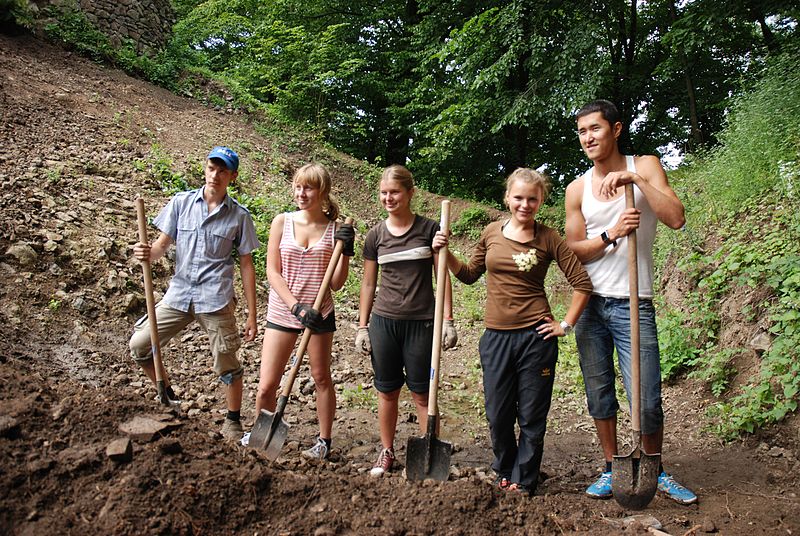Views expressed in opinion columns are the author’s own.
In the summer of my sophomore year of high school, many of my friends went on service trips. One went to Tanzania, another to New Orleans and a handful traveled to El Salvador. They subsequently flooded my timeline and newsfeed with so many photos of adorable children and stunning landscapes that I couldn’t help but feel a pang of jealousy and guilt that I wasn’t out changing the world.
Although these service trips appeared to be gracious acts of kindness at the time, they can also be argued as forms of “voluntourism” — or volunteer tourism. One Newsweek article describes it as “volunteer work in developing nations,” where “willing participants can travel the world while gaining a sense of community alongside fellow volunteers and the native population.” As innocent as this seems, voluntourism can have underlying implications — often unbeknown to its participants — and can do more harm than good.
Voluntourism can unintentionally promote the idea that white people can go into disadvantaged countries and, essentially, save the communities involved. This “white savior complex” can be traced back to historic instances of colonization when white men believed themselves to be superior human beings “saving” the lives of inferior individuals.
This notion is satirized and exposed on an Instagram account called Barbie Savior. The account depicts more than 100 scenes when a white Barbie doll travels to Africa and volunteers with black Barbie dolls ignorantly and flamboyantly — showing although voluntourism is founded on good intentions, it can manifest itself in excessive grandeur. On New Year’s day, for instance, Barbie Savior posted another satirical image of Barbie volunteering in Africa with the humorous caption, “2016. What a year! It was my first year taking up residency in the country of Africa.”
The white savior complex further exacerbates the “we vs. them” notion, furthering the belief that those in developing countries are inferior to us Americans.
Aside from promoting this white savior phenomenon, voluntourism can physically harm under-resourced countries. Because the trips are relatively short, they sometimes don’t have the capacity to have a long-term impact. Columnist Maya Wesby explained in Newsweek that voluntourism “creates a dependency between host communities and Western societies rather than the infrastructure needed for sustainable self-reliance.” Other immediate effects of voluntourism involve taking jobs away from local workers and furthering the trauma of abused or abandoned children, who end up developing emotional attachments to volunteers.
Even worse, the work done in these service trips can amount to little actual advancement. Pippa Biddle, a writer who traveled to Tanzania to volunteer on a school trip, remembers that every night, the local workers would have to take down and redo the flimsily constructed wall her group had built. “When we woke up in the morning, we would be unaware of our failure. It is likely that this was a daily ritual,” Biddle recalled.
In essence, it’s difficult to judge whether a service trip exploits communities for a much-needed wanderlust fix. But with the extensive volume of volunteer programs nowadays, it’s crucial to ask important questions: Why are you volunteering? Does the program you’re volunteering in employ local workers as well? Does it rely on wealthy white Americans to do work that trained locals could complete? Does it emphasize infrastructure rather than short-term advancement? These are the questions you need to decide before you embark on a trip to “change the world.”
Maris Medina is a freshman journalism major. She can be reached at marismedina29@gmail.com.



